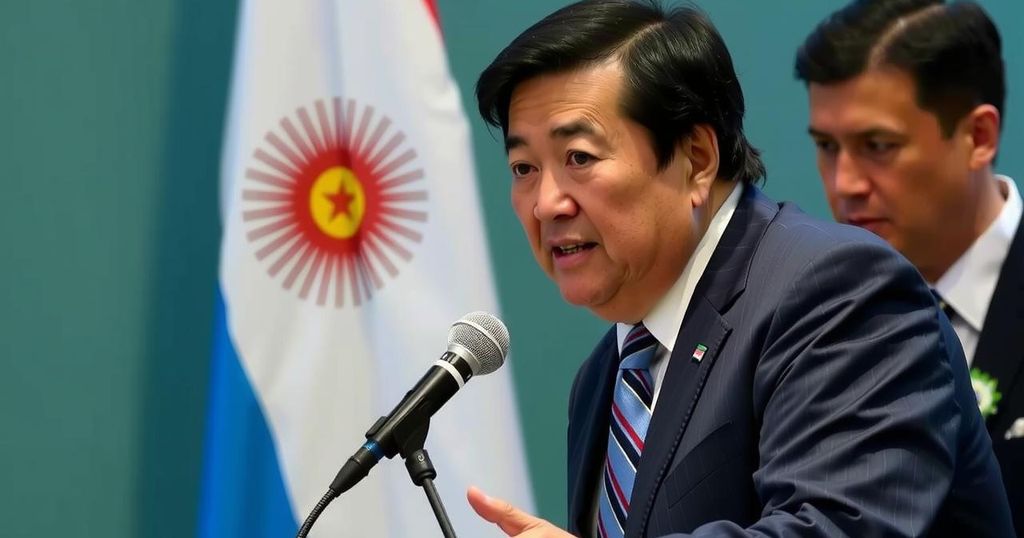President Javier Milei of Argentina has dismissed Foreign Minister Diana Mondino after the country voted at the UN to lift the US embargo on Cuba. Argentina joined 186 member states in favor of the resolution, while only the US and Israel opposed it. Gerardo Werthein has been appointed as the new foreign minister. This decision reflects a significant diplomatic shift under Milei’s administration, highlighting tensions between ideological commitments and geopolitical relationships.
President Javier Milei of Argentina has dismissed Foreign Minister Diana Mondino following the country’s recent vote at the United Nations to support the lifting of the United States’ longstanding embargo on Cuba. This decision, made public by presidential spokesman Manuel Adorni via X, coincided with Argentina’s alignment with 186 other UN member states favoring the cessation of the embargo that has been in place against the communist government of Cuba since 1962. The newly appointed foreign minister, Mr. Gerardo Werthein, previously served as Argentina’s ambassador to the United States. Only the United States and Israel, both allies of President Milei, opposed the resolution, while Moldova chose to abstain from voting. Following the announcement of Mondino’s termination, President Milei amplified a statement from a lawmaker expressing pride in a government that opposes dictatorship, declaring, “Viva CubaLibre.” Historically, Argentina has maintained a stance against the embargo on Cuba, yet this recent diplomatic tension arose as sources from the foreign ministry indicated that the support of Cuba and its allies may be essential for any future resolutions relating to Argentina’s sovereignty claims over the disputed Falkland Islands, a territory claimed by both Argentina and the United Kingdom.
The topic at hand involves Argentina’s foreign policy shift under President Javier Milei’s administration, particularly concerning Cuba and its relationship with the United States. The embargo on Cuba has been a contentious issue in international relations since its imposition in 1962, with many nations, including Argentina, advocating against it in past votes. The recent UN resolution marked a significant moment in which Argentina joined a majority of countries in favour of lifting the embargo. The implications of this decision extend beyond relations with Cuba, as it also highlights the balancing act that Argentina must navigate between its historical stance on international solidarity and the geopolitical realities of its relations with the United States and Israel. The change in foreign ministers signals a clear shift in Argentina’s diplomatic approach, emphasizing a commitment to its government’s ideological principles.
In conclusion, the sacking of Foreign Minister Diana Mondino by President Javier Milei following Argentina’s support for lifting the US embargo on Cuba underscores a significant policy shift in Argentine foreign relations. The appointment of Gerardo Werthein as the new foreign minister reflects this new direction, which prioritizes alignment with Milei’s political ideologies and the complexities of international diplomacy. As Argentina navigates its historical positions and future diplomatic strategies, the repercussions of this decision on its relationships with Cuba, the United States, and Israel will be closely observed.
Original Source: www.barrons.com






